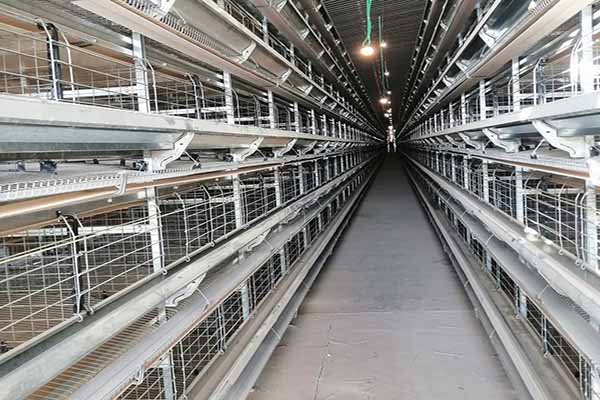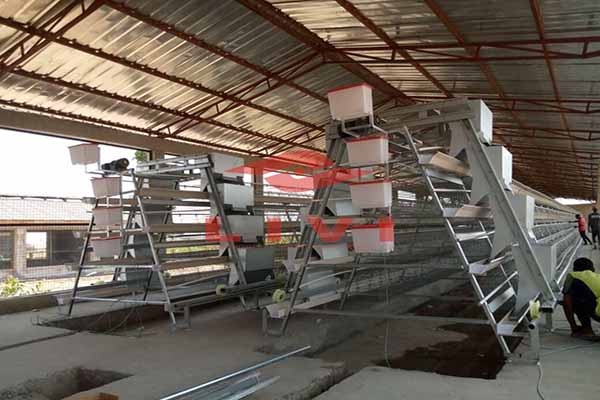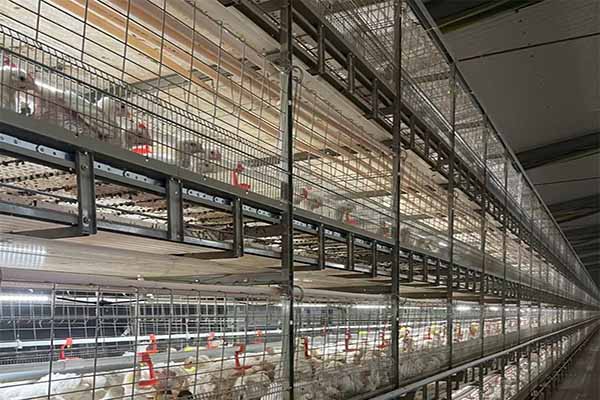How to Start a Chicken Coop Farm: A Comprehensive Guide
Time : 2025-04-20
Are you dreaming of starting your very own chicken coop farm? It’s a rewarding venture that can provide fresh eggs, organic meat, and a sense of accomplishment. But where do you start? Don’t worry; we’ve got you covered. In this article, we’ll walk you through the essential steps to get your chicken coop farm up and running. Let’s dive in!

1. Research and Planning
Before you take the leap, it’s crucial to do your homework. Here are some key aspects to consider:
1.1 Choose Your Farming Style
Decide whether you want to go for a traditional chicken coop farm or opt for a more modern approach like free-range or pasture-raised. Each style has its benefits and challenges, so choose what aligns best with your goals and resources.
1.2 Research Local Regulations
No matter where you live, there are likely regulations and permits required for running a chicken coop farm. Check with your local government to ensure you comply with all laws, including zoning, health, and animal welfare regulations.
1.3 Understand Chicken Behavior
Chickens are social animals that need proper care and attention. Learn about their behavior, diet, and health needs to provide them with the best environment.
2. Selecting the Location
The location of your chicken coop farm is crucial for its success. Here’s what to consider:
2.1 Space
Ensure you have enough space for your chickens to roam and spread their wings. Free-range chickens need a minimum of 100 square feet per bird, while pasture-raised chickens need even more space.
2.2 Sunlight and Shelter
Chickens require at least 6-8 hours of sunlight daily and protection from extreme weather conditions. Choose a location that offers both shade and sun exposure.
2.3 Access to Water and Feed
Easy access to fresh water and feed is essential. Plan for waterers and feeders that are easily accessible and can be checked and refilled regularly.
3. Buil ding the Chicken Coop
ding the Chicken Coop
Your chicken coop will be the heart of your farm. Here’s how to build a sturdy and functional coop:
3.1 Design and Materials
Start by sketching out a design that incorporates all the necessary components, such as nesting boxes, roosting bars, and ventilation. Use quality materials like treated lumber and weather-resistant hardware.
3.2 Size and Layout
The coop should be large enough to house your chickens comfortably, with nesting boxes, roosting bars, and enough space for you to clean and inspect.
3.3 Security
Keep predators out by building a secure coop with sturdy walls, secure doors, and predator-proof ventilation.
4. Chicken Selection
Choosing the right breed of chickens is important for your farm’s success. Consider the following factors:
4.1 Purpose
Are you looking for egg-laying hens, meat birds, or dual-purpose chickens? Different breeds excel in different areas.
4.2 Climate
Select chickens that are well-suited to your local climate. Some breeds are better suited for hot or cold climates than others.
4.3 Health and Hardiness
Look for breeds that are known for their hardiness and resistance to common diseases.
5. Daily Care
Caring for your chickens on a daily basis is vital for their health and happiness. Here’s what to do:
 5.1 Feeding
5.1 Feeding
Provide a balanced diet that includes feed formulated for your chickens’ age, purpose, and nutritional needs.
5.2 Watering
Make sure your chickens always have access to fresh, clean water.
5.3 Health and Safety
Regularly inspect your chickens for signs of illness or injury and provide appropriate veterinary care when needed.
6. Marketing and Sales
Once your chicken coop farm is up and running, it’s time to think about how you’ll sell your products:
6.1 Direct Sales
Sell your eggs and meat directly to customers through farmers’ markets, farm stands, or by appointment.
6.2 Distributors and Wholesalers
Explore partnerships with local restaurants, grocery stores, and distributors to increase your sales reach.
7. Expansion and Growth
As your chicken coop farm grows, consider ways to expand and improve your operation:
7.1 Breeding Program
Develop a breeding program to select and raise the best-performing chickens for your farm.
7.2 Additional Products
Expand your offerings by processing and selling chicken meat, offering workshops, or selling chicken manure as organic fertilizer.
Final Thoughts
Starting a chicken coop farm can be a challenging yet incredibly rewarding journey. By following these steps and staying committed to the well-being of your chickens, you’ll be well on your way to a successful farm. Happy farming!











